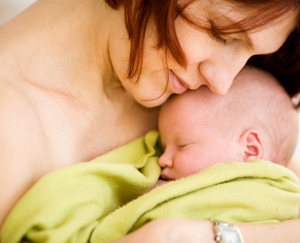Penn Herb Wellness Guide
Boost Iron for a Healthier Pregnancy

Essential iron
Iron is needed to make hemoglobin, a molecule that carries oxygen in the blood. Since blood volume increases by about 50% during pregnancy, pregnant women need more iron to supply oxygen throughout their bodies and to their babies. Low iron levels during pregnancy can lead to anemia that may persist in the baby after birth.
More iron means healthier babies
The analysis combined the results of 92 different studies investigating the effects of iron supplementation on maternal anemia and pregnancy outcomes, as well as the effects of maternal hemoglobin levels, different iron dosages, and the duration of iron supplementation on pregnancy outcomes.
Here’s the summary of the results:
- Iron use significantly reduced the risk of low-birth-weight babies and iron-deficiency anemia in the women.
- Babies born to women who were anemic in their first or second trimesters had a significantly higher risk of preterm birth and low birth weight.
- For every 10 mg of additional iron per day, birth weight increased by 15 grams and the risk of low birth weight went down by 3%.
- For every gram per liter that the women’s hemoglobin levels increased, birth weight increased by 14 grams.
- Duration of iron supplementation wasn’t significantly associated with pregnancy outcomes.
“Our findings suggest that use of iron in women during pregnancy may be used as a preventive strategy to improve maternal hematological status and birth weight,” said lead study author, Batool Haider. “Prenatal anemia and iron deficiency have been identified as one of the preventable risk factors for disease with a substantial disease burden.”
Get your iron here
There are two types of iron: heme and non-heme. Heme iron is the most absorbable and is found in foods like beef, lamb, chicken, egg yolks, and fish. Non-heme iron is found in lentils, beans, blackstrap molasses, berries, green leafy vegetables, whole grains, dried fruit, and nuts and seeds.
Vitamin C helps increase iron absorption. For vegetarian women, eating foods like bell peppers, strawberries, oranges, Brussels’s sprouts, broccoli, tomatoes, or cantaloupe along with non-heme iron sources can help boost iron absorption.
How much is enough?
The World Health Organization suggests that women get 60 mg of iron per day during pregnancy, while the USRDA of iron for pregnant women is 30 mg.
Taking too much iron can also be a problem, so do not supplement iron unless you have discussed it with your doctor. A small percentage of people are not able to properly metabolize iron, which can cause excess iron can accumulate in the body, resulting in organ and tissue damage. Talk to your doctor about the best sources and amounts of iron for you.
(BMJ 2013;doi:10.1136/bmj.f3443)
Copyright 2025 TraceGains, Inc. All rights reserved.


